What is Matcha?
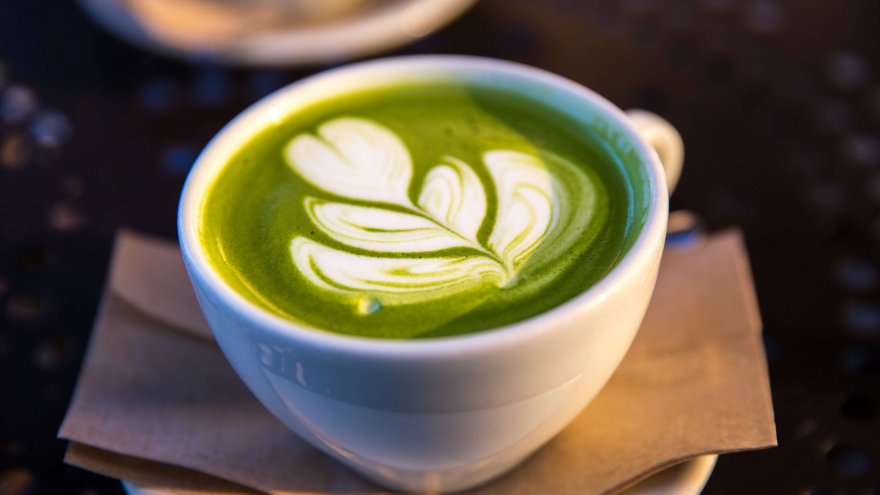
Over the years the tea industry has become quite popular as many different types have loads of health benefits. Tea has become a common beverage of choice over coffee for many and is being used in several other types of food products. Smoothies, acai bowls, and even skin care products are infused with tea extracts. Green tea is probably the most common tea of choice lately with its long list of nutrients. Studies reveal it can help improve brain function, lower cancer risk, and help with fat loss. Although not all of the compounds from the actual green tea plant make it into the actual drink, it still supplies several antioxidants and nutrients.
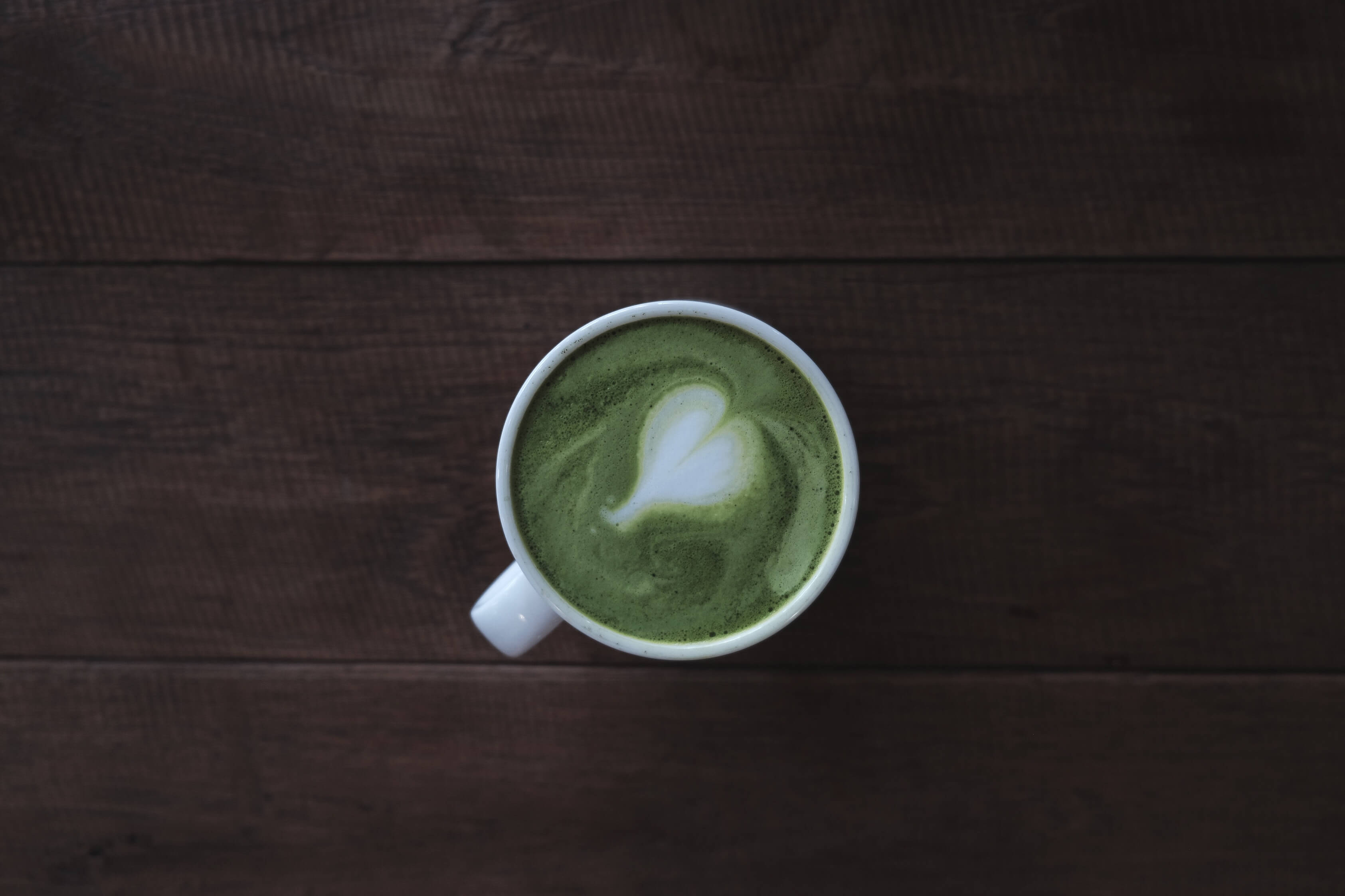
The Whole Plant Benefits
Matcha is basically the powdered form of tea. The difference between having matcha and the regular version of tea is that matcha includes the entire leaves of the plant as well. This means it contains many more nutrients than the tea drink alone. This powdered form of tea is made by a different method than traditional tea as well. The plants are usually covered before they are harvested and then dried in a cold storage in order to enhance the flavor and texture. Once dried, they are finely ground into a powder. Matcha is made from high quality plants as well, so you can guarantee it has a more potent source of nutrients.
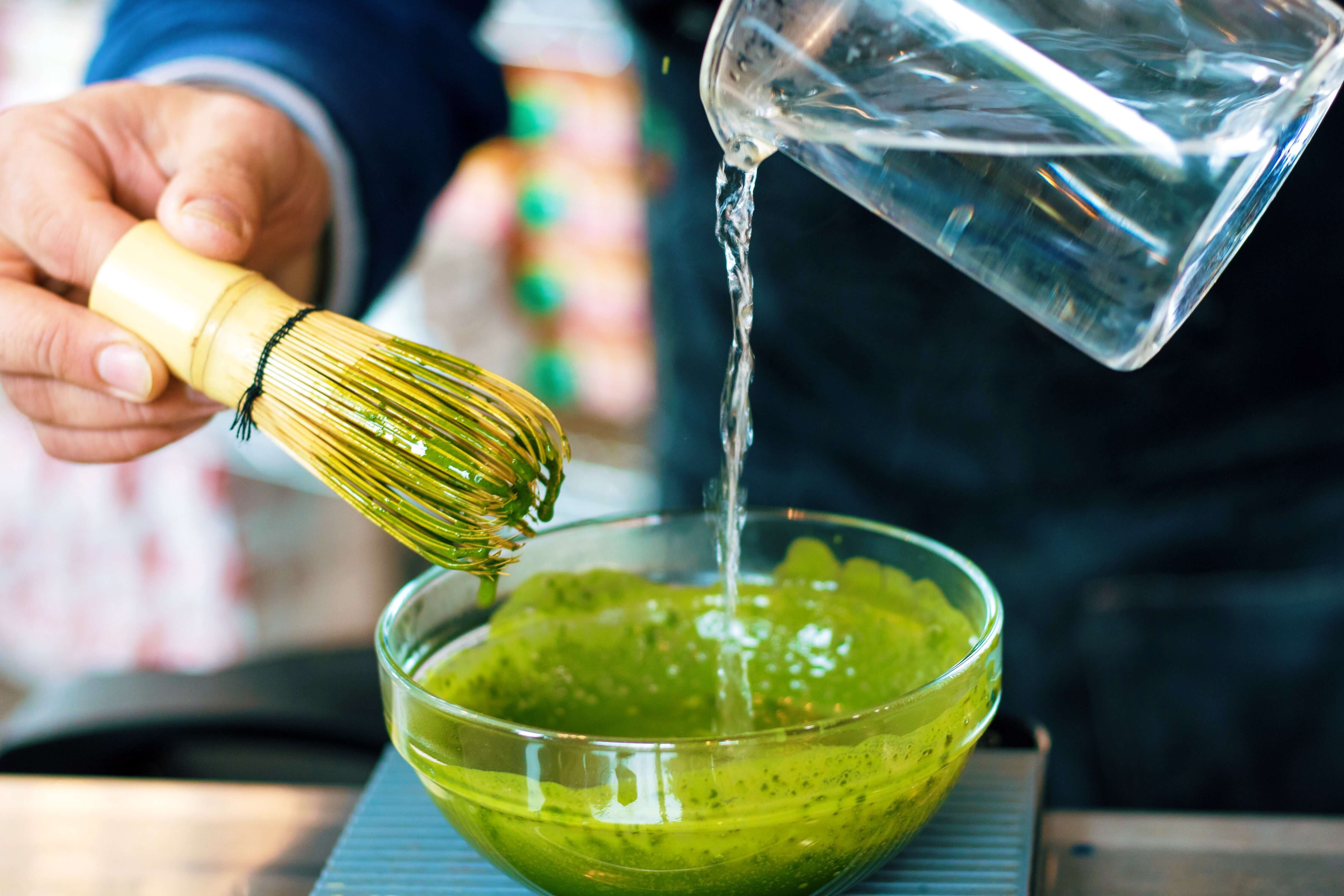
Polyphenols
One of the strongest antioxidants out there is found in matcha green tea. Polyphenols offer several health benefits including protection against heart disease and cancer, blood sugar regulation, lowering of blood pressure, and even anti-aging. A specific polyphenol in matcha called EGCG has been shown to help slow the growth of cancer cells.
Caffeine
Do not worry about missing the caffeine boost when switching your coffee out with green tea. Matcha green tea has the same amount of caffeine as a cup of coffee, which is three times the amount in steeped green tea! Some avid matcha green tea drinkers have reported that the energy buzz from matcha is different than coffee as it causes a more ‘relaxed alertness’ rather than a jolt of energy. Because of the higher caffeine content, it would not be the best idea to consume any caffeinated beverages at least a few hours before bedtime.
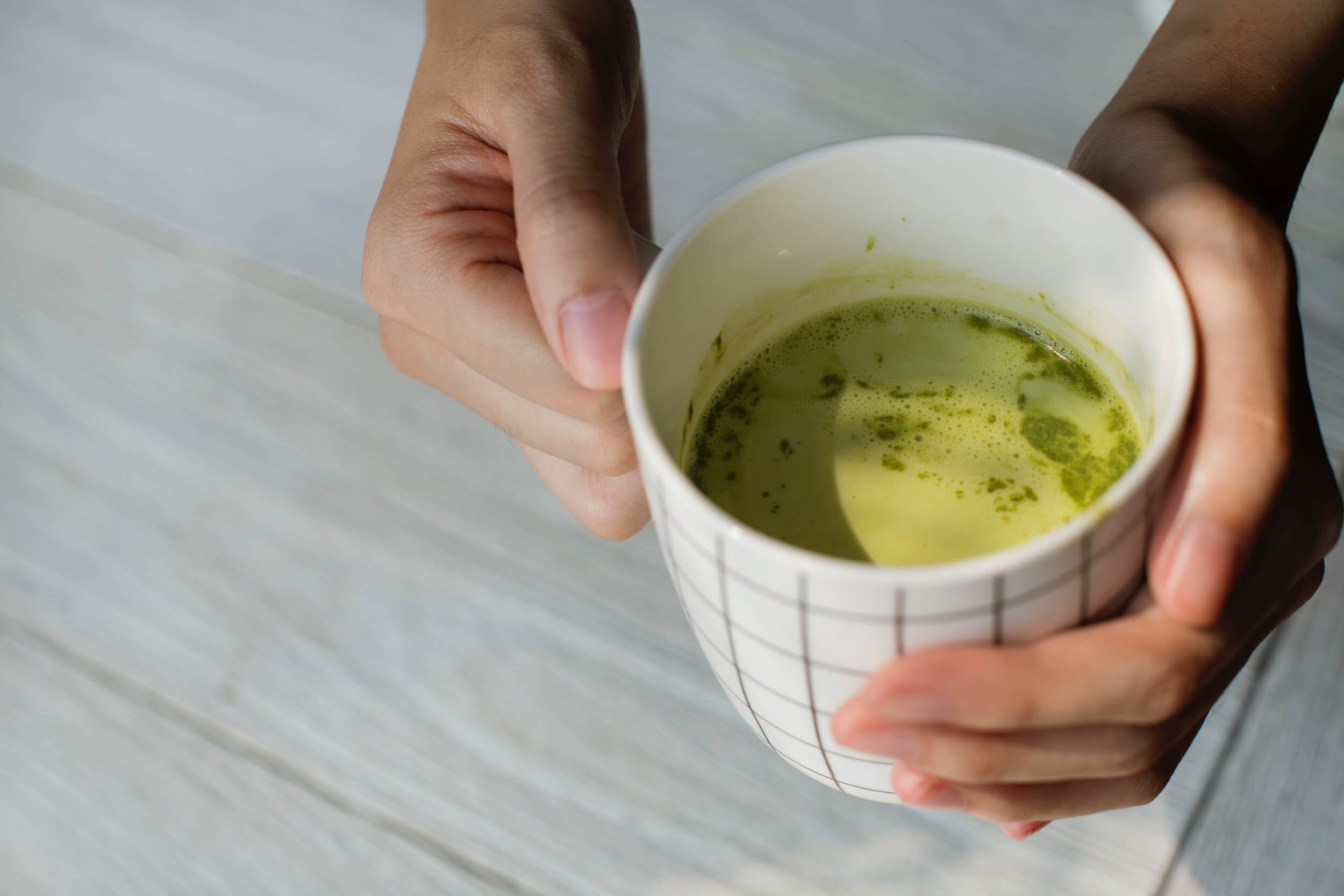
Weight Loss
Catechins, antioxidants found in matcha, are responsible for many of the fat loss benefits. These substances prevent the enzymes that breakdown norepinephrine, which is what causes our bodies to use fat stores for energy. With this norepinephrine preservation, fat-burning is maximized during exercise.
Recovery
The body undergoes damage during exercise when it is loaded with stress such as resistance from weight training or intensity from speed work. It also undergoes a second bout of damage after exercise when free radicals are released by the muscle fibers. Since these stages of damage are required in order to improve performance, one must enhance the recovery afterwards to be ready for the next training session. The polyphenols supplied by matcha green tea can help create a better balance of the damage and recovery. Some say it is similar to using an ice bath after workouts.

Detox
The rich green color of matcha is due to the high amounts of chlorophyll, which is a plant pigment that absorbs light. Since matcha plants are shaded during harvest, they especially have significant levels of chlorophyll. This nutrient helps eliminate toxins and heavy metals from the body. It also increases the oxygen delivering capacity, which aids in cleansing the body at a cellular level.
Where to Buy Matcha
Matcha powder can be found in many grocery and health food stores, but it is easy to pick out the wrong kind. Make sure to check the ingredients list and stay away from those with sugar as their first ingredient. This is very common as well as added powdered milk, which is what most coffee shops and restaurants use when making matcha lattes and other green tea drinks. It is best to opt for matcha powder with just one ingredient: matcha. This high quality form of green tea is also higher priced than any other tea. Many shops will sell lower priced matcha powder, which will be of lower quality. It is especially important to stay away from matcha powder made in China as it is known to have pesticides. Many bakeries and coffee shops also make food products using matcha powder.
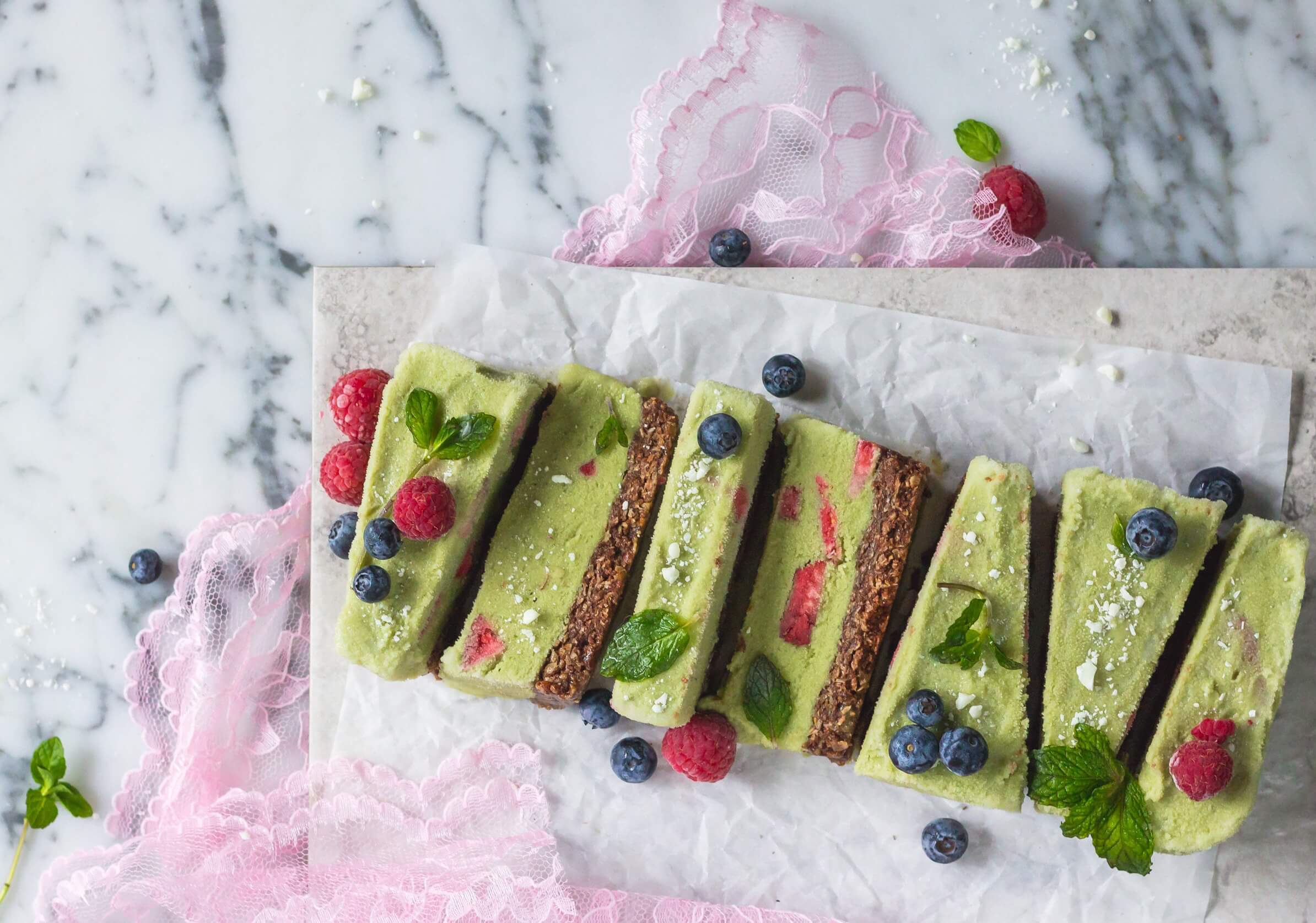
To make matcha green tea, it is as simple as adding a teaspoon to a third cup of hot water. Milk or milk substitutes and sweeteners can be added as well just as you would do with coffee. There are few side effects to be cautious about. There is a concern for lead contamination in some varieties, so it is important to choose organic matcha powders. For this reason it is best to keep portions to one cup per day and avoid matcha if pregnant or breastfeeding. Green tea consumption can also decrease iron absorption so it is a good idea to limit matcha if anemic or iron-deficient. Overall matcha green tea is a powerful source of nutrients and antioxidants that provide many health benefits.
Sources
Latest Articles
 Is Running on a Treadmill Easier Than Running Outside?Runners have their own preferences, whether it is treadmill running, running outside on the road, or exploring trails. So...
Is Running on a Treadmill Easier Than Running Outside?Runners have their own preferences, whether it is treadmill running, running outside on the road, or exploring trails. So... Is It OK to Use Trail Running Shoes on the Road?While trail running shoes can be used on roads, especially in situations where a runner encounters mixed terrains or pref...
Is It OK to Use Trail Running Shoes on the Road?While trail running shoes can be used on roads, especially in situations where a runner encounters mixed terrains or pref... How to Fix Sore Quads After Running?Rest, ice, gentle stretching, and over-the-counter pain relievers can help soothe sore quads after running. Also, ensure ...
How to Fix Sore Quads After Running?Rest, ice, gentle stretching, and over-the-counter pain relievers can help soothe sore quads after running. Also, ensure ... 10 Fruits With The Most Electrolytes to Replace Sports DrinksThese fruits are high in electrolytes such as potassium, magnesium, and calcium, essential for hydration, muscle function...
10 Fruits With The Most Electrolytes to Replace Sports DrinksThese fruits are high in electrolytes such as potassium, magnesium, and calcium, essential for hydration, muscle function...

